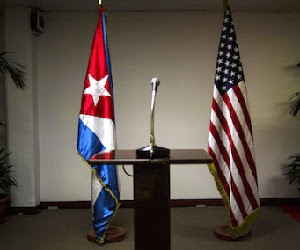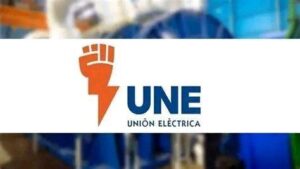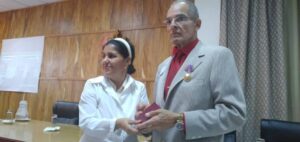Cuba is willing to have a constructive and respectful relationship with the United States, and we see no reason why the current president, Donald Trump, would be opposed to doing so, said Deputy Foreign Minister Carlos Fernández de Cossío.
In an interview broadcast last night on Mexican television channel 14, the deputy foreign minister pointed out that, naturally, ‘it would entail having to recognise that Cuba is a sovereign state’ to which it has rights and the prerogatives of self-determination.
‘If the United States were only capable of doing that, I think there could be a relationship, and if it were capable of addressing the interests that I would say are strategic and that concern the whole of the American Union, US society,’ he said.
He alluded to the existence of people who have made political careers and have enriched themselves with the business of hostility against the island, but ‘do not necessarily represent the sentiment’ of the Cuban community there, nor of the majority of US society.
The Vice-Chancellor expressed his conviction that if the majority of the American people were properly informed and fully aware of the nature of the US government’s policy against Cuba and the harm it is causing the population, they would openly oppose it.
With regard to the position of the Trump administration towards the island, he pointed out the presence of a great influence of anti-Cuban sectors, and although there has been no open, declared pronouncement, they have already taken action.
Among these, in addition to the ironclad maintenance of the economic, commercial and financial blockade imposed by Washington, is the inclusion of the largest of the Antilles once again on the unilateral list of states that allegedly sponsor terrorism.
At another point in the conversation, Fernández de Cossío mentioned the aggressiveness against the island on the part of the current US Secretary of State, Marco Rubio.
‘We don’t know what he might think, we don’t know what degree of authority he has in the government, nor how he would respond to a decision by the president concerning our country,’ he said.
‘But Cuba,’ he said, «cannot interact with whoever the representative of the US government is, as long as it is a dialogue, a respectful exchange in which we clearly state our positions.
He reaffirmed that his country is not asking the United States for money, or soft loans, or donations, or preferential trade treatment, but something very simple.
‘That we be treated as what we are, which is a fully sovereign state, with the capacity and the determination to build its future the way it understands it, not the way the rulers of the United States understand it,’ he stressed.
That is not too much to ask,‘ he declared, ’and that is how Cuba relates to the rest of the world, the exception being the United States».




